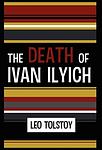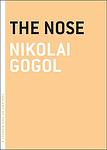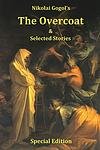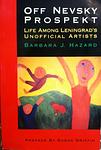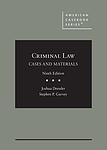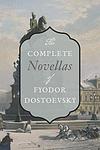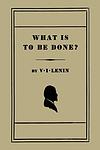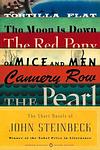The Greatest "Saint Petersburg" Books of All Time
Click to learn how this list is calculated.
This list represents a comprehensive and trusted collection of the greatest books. Developed through a specialized algorithm, it brings together 284 'best of' book lists to form a definitive guide to the world's most acclaimed books. For those interested in how these books are chosen, additional details can be found on the rankings page.
Genres
Countries
Date Range
Reading Statistics
Click the button below to see how many of these books you've read!
Download
If you're interested in downloading this list as a CSV file for use in a spreadsheet application, you can easily do so by clicking the button below. Please note that to ensure a manageable file size and faster download, the CSV will include details for only the first 500 books.
Download-
1. Crime and Punishment by Fyodor Dostoevsky
A young, impoverished former student in Saint Petersburg, Russia, formulates a plan to kill an unscrupulous pawnbroker to redistribute her wealth among the needy. However, after carrying out the act, he is consumed by guilt and paranoia, leading to a psychological battle within himself. As he grapples with his actions, he also navigates complex relationships with a variety of characters, including a virtuous prostitute, his sister, and a relentless detective. The narrative explores themes of morality, redemption, and the psychological impacts of crime.
-
2. Anna Karenina by Leo Tolstoy
Set in 19th-century Russia, this novel revolves around the life of Anna Karenina, a high-society woman who, dissatisfied with her loveless marriage, embarks on a passionate affair with a charming officer named Count Vronsky. This scandalous affair leads to her social downfall, while parallel to this, the novel also explores the rural life and struggles of Levin, a landowner who seeks the meaning of life and true happiness. The book explores themes such as love, marriage, fidelity, societal norms, and the human quest for happiness.
-
3. War and Peace by Leo Tolstoy
Set in the backdrop of the Napoleonic era, the novel presents a panorama of Russian society and its descent into the chaos of war. It follows the interconnected lives of five aristocratic families, their struggles, romances, and personal journeys through the tumultuous period of history. The narrative explores themes of love, war, and the meaning of life, as it weaves together historical events with the personal stories of its characters.
-
4. The Idiot by Fyodor Dostoevsky
The book follows the story of a kind-hearted and naive protagonist who returns to Russia from a Swiss sanatorium, where he was treated for a severe epileptic condition. Despite his pure intentions, he gets entangled in a web of love, greed, and manipulation, leading to tragic consequences. The novel explores themes of innocence, love, sacrifice, and societal expectations, offering a profound critique of Russian society during the 19th century.
-
5. Oblomov by Ivan Goncharov
The book is a satirical critique of the nobility in 19th century Russia, focusing on the titular character, a lazy and apathetic nobleman who prefers to daydream and live in his own fantasies rather than engage with the real world. His indolence is contrasted with the energetic and ambitious character of his friend who tries to get him involved in societal affairs and business. The protagonist's lethargy and inability to adapt to changing times symbolize the decay and stagnation of the Russian nobility.
-
6. The Death of Ivan Ilyich by Leo Tolstoy
The book is a poignant exploration of mortality and the human condition, focusing on a high-court judge in 19th-century Russia who lives a seemingly successful and conventional life. However, when he is confronted with a terminal illness, he begins to question the meaning and value of his life, leading to an existential crisis and eventual spiritual awakening. Through his struggle, he comes to realize the superficiality of his previous life and the importance of genuine human connection. His story is a profound commentary on the nature of life, death, and the pursuit of happiness.
-
7. Eugene Onegin by Alexander Pushkin
"Eugene Onegin" is a classic Russian novel in verse that tells the story of a sophisticated and cynical young man, Eugene Onegin, who moves from the city to the country following the death of his uncle. Throughout the novel, Onegin engages in a series of interactions with other characters, including Tatyana, a young country woman who falls in love with him. Despite her sincere love, Onegin rejects Tatyana, leading to a tragic duel with his friend Lensky. The novel is renowned for its exploration of Russian society, love, and the human experience.
-
8. Notes from the Underground by Fyodor Dostoevsky
This novel is a profound exploration of the human psyche through the eyes of a bitter and isolated retired civil servant living in St. Petersburg. The protagonist, a self-proclaimed "sick" and "spiteful" man, delves into his past experiences and personal philosophies in a series of rambling and often contradictory monologues. His existential musings touch on themes such as free will, determinism, and the nature of human action, often challenging the prevailing ideologies of his time. The narrative provides a deep and unsettling insight into the darker aspects of human consciousness.
-
9. Resurrection: A Novel by Leo Tolstoy
"Resurrection: A Novel" is a profound exploration of moral responsibility and the possibility of redemption. The story revolves around a nobleman who, in his youth, seduces and abandons a young servant girl. Years later, he encounters her as a prostitute on trial for murder. Overwhelmed by guilt for his role in her downfall, he decides to atone for his sins by dedicating himself to her defense and rehabilitation. The novel grapples with themes of morality, justice, and the human capacity for change.
-
10. The Nose by Nikolai Gogol
"The Nose" is a satirical short story that follows the life of a Russian official whose nose leaves his face and develops a life of its own. The nose transforms into a human and starts living as a higher-ranking official than its original owner. The story unfolds as the official tries to regain his lost nose, only to face numerous absurd and comical situations. The narrative is a critique of the social and bureaucratic conditions of 19th-century Russia.
-
11. Overcoat by Nikolai Gogol
The narrative centers on a meek and downtrodden government clerk living in St. Petersburg, whose life is consumed by the desire to replace his threadbare overcoat. After much sacrifice, he finally acquires a new overcoat, which momentarily elevates his social standing and brings him brief joy. However, his triumph is short-lived as the overcoat is stolen, plunging him back into misery. The clerk's desperate attempts to recover his lost garment ultimately lead to his untimely death, and his ghost is said to haunt the city, searching for the stolen overcoat, in a tale that intertwines the tragic with the absurd, and critiques the indifference of society to the plight of its less fortunate members.
-
12. The Bronze Horseman by Alexander Pushkin
The narrative poem is a romantic tale set against the backdrop of the monumental flood of 1824 in Saint Petersburg, Russia. It follows the young Evgenii, who falls passionately in love with Parasha, a beautiful girl he encounters in the city. However, their budding romance is tragically interrupted by the catastrophic flood, which wreaks havoc across the city. In the aftermath, Evgenii's mind becomes unhinged by the loss and devastation, leading him to fixate on the equestrian statue of Peter the Great, The Bronze Horseman, which he blames for his misfortune. The poem explores themes of man versus nature, fate, and the individual against the backdrop of historical progress.
-
13. The Fourth Prose by Osip Mandelshtam
"The Fourth Prose" is a collection of autobiographical sketches and essays that delve into the author's reflections on literature, culture, and his own experiences. Through a series of lyrical and philosophical musings, the work explores the nature of artistic creation, the role of the poet in society, and the oppressive political climate of the author's time. The prose pieces are marked by their rich language and imagery, as well as their deep engagement with the European literary tradition, all while offering a poignant critique of the totalitarian regime under which the author lived, ultimately serving as a testament to the enduring power of the human spirit and the written word.
-
14. Nevsky Prospekt by Nikolai Gogol
The narrative unfolds on the bustling Nevsky Prospekt in Saint Petersburg, where the lives of two men intersect amidst the avenue's deceptive allure. One man, a romantic artist, becomes infatuated with a beautiful woman who is not what she seems, leading to a disillusioning revelation. The other, a pragmatic German, pursues a seemingly modest seamstress with tragic consequences. Through these parallel tales of love and illusion, the story offers a satirical and poignant exploration of the superficiality and transient nature of urban life, revealing the stark contrast between the glittering facade of the city and the grim reality of its inhabitants' lives.
-
15. The Queen Of Spades by Alexander Pushkin
The novella revolves around a young Russian officer named Hermann, who becomes obsessed with uncovering the secret to winning at cards after hearing a story about an elderly countess who possesses this knowledge. Driven by greed and the allure of easy wealth, Hermann schemes to learn the secret from the countess, leading to a series of events that intertwine fate, supernatural elements, and psychological intrigue. His relentless pursuit of the secret ultimately leads to a haunting and tragic conclusion, as the line between ambition and madness becomes dangerously blurred.
-
16. The Russian Revolution by Richard Pipes
"The Russian Revolution" offers a comprehensive and detailed account of the events leading up to, during, and following the Russian Revolution of 1917. The author presents a thorough exploration of the socio-political climate of the time, the key figures involved, and the profound impact the revolution had on Russia and the wider world. The book also delves into the ideologies that fueled the revolution, the subsequent rise of the Soviet Union, and the enduring influence of these events on global history.
-
17. Cases by Daniil Kharms
The book is a collection of absurdist short stories that reflect the author's unique take on the Soviet reality of his time. Through a series of bizarre and darkly humorous vignettes, the author explores themes of meaninglessness, the breakdown of logic, and the unpredictability of human existence. His characters often find themselves in surreal situations that defy conventional understanding, highlighting the author's fascination with the illogical and the nonsensical. The work serves as both a critique of the societal norms of the era and an example of the avant-garde literary movement to which the author belonged.
-
18. Poor Folk by Fyodor Dostoevsky
The novel unfolds as a poignant exchange of letters between two impoverished relatives, an elderly clerk and a young woman, who share their struggles, hopes, and the grim reality of their lives in 19th-century St. Petersburg. Their correspondence reveals the depth of their bond and the social pressures that keep them trapped in poverty. Through their heartfelt and sometimes despairing messages, the narrative paints a vivid picture of the harsh societal conditions of the time, exploring themes of poverty, class, and the human desire for dignity and connection amidst adversity.
-
19. Poems Of Anna Akhmatova by Anna Akhmatova
This collection presents a poignant anthology of works by a prominent Russian poet, whose verse captures the complexities of life and love against the backdrop of the early 20th century, including the turmoil of the Russian Revolution and the hardships of the Stalinist era. The poems are marked by their lyrical intensity, emotional depth, and personal reflection, often weaving together themes of individual suffering, resilience, and the enduring power of the human spirit. The poet's distinctive voice and masterful use of language have cemented her place as a significant figure in the literary canon, offering readers a deeply moving and introspective journey through her experiences and observations.
-
20. What Is To Be Done? by Nikolay Chernyshevsky
The book in question is a novel that serves as a social and political commentary on the mid-19th century Russian society. It follows the lives of a group of young revolutionaries who advocate for the emancipation of serfs and the establishment of socialism through rational egoism and utilitarianism. The narrative focuses on the character development and ideological struggles of these individuals as they navigate love, marriage, and intellectual debates. The novel's didactic message promotes the idea that through education and hard work, a new social order can be achieved, one that is based on equality, reason, and the collective good. It became an influential piece of literature for Russian radicals and later, revolutionaries, inspiring political movements and change.
-
21. Short Novels by Fyodor Dostoevsky
This collection of works by the renowned Russian author delves into the depths of the human psyche, exploring themes of morality, free will, and the existential struggles of individuals in society. The narratives often focus on characters who are grappling with profound internal conflicts, societal pressures, and ethical dilemmas. Through a series of intense, philosophical dialogues and dramatic plot developments, the author examines the nature of good and evil, the possibility of redemption, and the enduring question of what it means to be human. Each novella in the collection serves as a powerful exploration of the complexities of the soul and the human condition.
-
22. Catherine The Great: Portrait Of A Woman by Robert K. Massie
This biography provides an in-depth look at the life of the longest-reigning female leader of Russia, tracing her journey from a minor German princess to the powerful Empress of Russia. It delves into her political achievements, her efforts to modernize Russia, and her numerous romantic liaisons, all set against the backdrop of the opulence and intrigue of the 18th-century Russian court. The book paints a vivid portrait of a complex woman who wielded her intelligence and charisma to navigate the treacherous waters of court politics, expand her empire, and become one of the most influential figures in European history.
Reading Statistics
Click the button below to see how many of these books you've read!
Download
If you're interested in downloading this list as a CSV file for use in a spreadsheet application, you can easily do so by clicking the button below. Please note that to ensure a manageable file size and faster download, the CSV will include details for only the first 500 books.
Download




